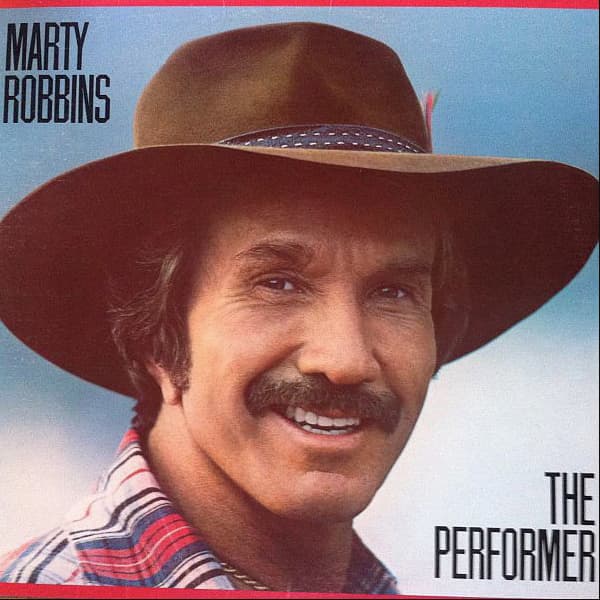
Marty Robbins – Confused and Lonely: A Song of Heartache from a Man Nearing His Final Years
When Marty Robbins released The Performer in 1978 under Columbia Records, he was already a legend with decades of storytelling behind him. The album, one of his last before his untimely passing in 1982, leaned heavily toward country ballads and showcased Robbins in a more reflective, vulnerable light. The Performer reached No. 47 on the U.S. Country Albums chart and climbed to No. 7 on the Canadian Country Albums chart, showing that Robbins’ voice still resonated strongly across North America. While the singles “Please Don’t Play a Love Song” and “Touch Me With Magic” both entered the country charts with respectable success, tucked quietly within the record was “Confused and Lonely”, a song that captured Robbins at his most fragile and human.
Written by Robbins himself, “Confused and Lonely” runs a mere two and a half minutes, yet it carries the weight of years lived, of struggles endured, and of emotions too deep to fully express. There is no grand tale of cowboys or desperadoes here—this is a confession, a glimpse into the uncertainty of a man wrestling with solitude and the aching silence that follows love’s departure. The title alone, “Confused and Lonely”, says more than pages of lyrics ever could: it is the admission that strength and fame cannot shield the heart from longing.
By the late 1970s, Robbins’ voice had taken on a texture that was richer, darker, more reflective. He had moved past the youthful clarity of El Paso and the energetic tone of his gunfighter ballads. Here, he sings not as a performer dazzling a crowd, but as a man almost whispering his troubles in a dimly lit room. The arrangement is understated—soft instrumentation allowing the weight of his vocal delivery to stand at the center. One can almost imagine him sitting with a guitar at the end of a long day, quietly revealing his thoughts to no one but the shadows.
For older listeners, the resonance of this song lies in its truth. Everyone, at some point in life, has felt both confused and lonely. It might be after the loss of a spouse, the drifting away of a friend, or simply in the quiet hours when the world feels distant. Robbins captures that universal ache with honesty, never dressing it up with bravado. Instead, he allows the vulnerability to remain bare, and in that openness, the song becomes deeply relatable.
Though “Confused and Lonely” was never released as a single and thus did not chart on its own, its place on The Performer gives it a quiet significance. This was Robbins in his later years, still writing, still searching, still unafraid to let his audience see the man behind the legend. Looking back now, the song feels almost prophetic—an artist nearing the end of his journey, reflecting not on glory, but on the emotions that haunt every human heart.
In many ways, “Confused and Lonely” is not just a song—it is a reminder. A reminder that even those who filled stadiums and topped charts knew the same loneliness we all do. And perhaps that is why Marty Robbins endures: because in songs like this, he gave us more than music; he gave us a piece of himself.